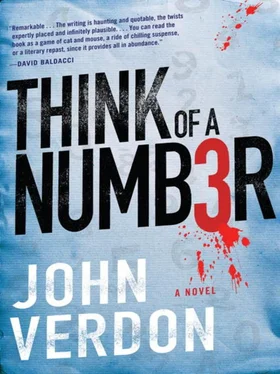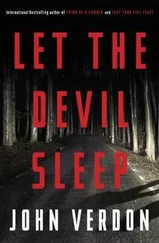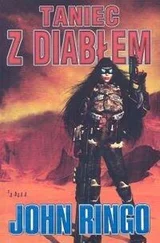As Gurney worked at the desk in his den that bright October morning on the mug shot of Jason Strunk, the pleasant challenge of the process was interrupted by the sound of something being dropped on the floor behind him.
“I’m leaving these here,” said Madeleine Gurney in a voice that to anyone else might have sounded casual but to her husband was fraught.
He looked over his shoulder, his eyes narrowing at the sight of the small burlap sack leaning against the door. “Leaving what?” he asked, knowing the answer.
“Tulips,” said Madeleine in the same even tone.
“You mean bulbs?”
It was a silly correction, and they both knew it. It was just a way of expressing his irritation at Madeleine’s wanting him to do something he didn’t feel like doing.
“What do you want me to do with them in here?”
“Bring them out to the garden. Help me plant them.”
He considered pointing out the illogic of her bringing into the den something for him to bring back out to the garden but thought better of it.
“As soon as I finish with this,” he said a little resentfully. He realized that planting tulip bulbs on a glorious Indian-summer day in a hilltop garden overlooking a rolling panorama of crimson autumn woods and emerald pastures under a cobalt sky was not a particularly onerous assignment. He just hated being interrupted. And this reaction to interruption, he told himself, was a by-product of his greatest strength: the linear, logical mind that had made him such a successful detective-the mind that was jarred by the slightest discontinuity in a suspect’s story, that could sense a fissure too tiny for most eyes to see.
Madeleine peered over his shoulder at the computer screen. “How can you work on something so ugly on a day like this?” she asked.
A perfect victim
David and Madeleine Gurney lived in a sturdy nineteenth-century farmhouse, nestled in the corner of a secluded pasture at the end of a dead-end road in the Delaware County hills five miles outside the village of Walnut Crossing. The ten-acre pasture was surrounded by woods of cherry, maple, and oak.
The house retained its original architectural simplicity. During the year they’d owned it, the Gurneys had restored to a more appropriate appearance the previous owner’s unfortunate updates-replacing, for example, bleak aluminum windows with wood-framed versions that possessed the divided-light style of an earlier century. They did it not out of a mania for historical authenticity but in recognition that the original aesthetics had somehow been right . This matter of how one’s home should look and feel was one of the subjects on which Madeleine and David were in complete harmony-a list that, it seemed to him, had lately been shrinking.
This thought had been eating like acid at his mood most of the day, activated by his wife’s comment about the ugliness of the portrait he was working on. It was still at the edge of his consciousness that afternoon when, dozing in his favorite Adirondack chair after the tulip-planting activity, he became aware of Madeleine’s footsteps brushing toward him through the ankle-high grass. When the footsteps stopped in front of his chair, he opened one eye.
“Do you think,” she said in her calm, light way, “it’s too late to take the canoe out?” Her voice positioned the words deftly between a question and a challenge.
Madeleine was a slim, athletic forty-five-year-old who could easily be mistaken for thirty-five. Her eyes were frank, steady, appraising. Her long brown hair, with the exception of a few errant strands, was pulled up under her broad-brimmed straw gardening hat.
He responded with a question from his own train of thought. “Do you really think it’s ugly?”
“Of course it’s ugly,” she said without hesitation. “Isn’t it supposed to be?”
He frowned as he considered her comment. “You mean the subject matter?” he asked.
“What else would I mean?”
“I don’t know.” He shrugged. “You sounded a bit contemptuous of the whole thing-the execution as well as the subject matter.”
“Sorry.”
She didn’t seem sorry. As he teetered on the edge of saying so, she changed the subject.
“Are you looking forward to seeing your old classmate?”
“Not exactly,” he said, adjusting the reclining back of his chair a notch lower. “I’m not big on recollections of times past.”
“Maybe he’s got a murder for you to solve.”
Gurney looked at his wife, studied the ambiguity of her expression. “You think that’s what he wants?” he asked blandly.
“Isn’t that what you’re famous for?” Anger was beginning to stiffen her voice.
It was something he’d witnessed in her often enough in recent months that he thought he understood what it was about. They had different notions of what his retirement from the job was supposed to mean, what kind of changes it was supposed to make in their lives, and, more specifically, how it was supposed to change him . Recently, too, ill feeling had been growing around his new avocation-the portraits-of-murderers project that was absorbing his time. He suspected that Madeleine’s negativity in this area might be partly related to Sonya’s enthusiasm.
“Did you know he’s famous, too?” she asked.
“Who?”
“Your classmate.”
“Not really. He said something on the phone about writing a book, and I checked on it briefly. I wouldn’t have thought he was well known.”
“Two books,” said Madeleine. “He’s the director of some sort of institute in Peony, and he did a series of lectures that ran on PBS. I printed out copies of the book jackets from the Internet. You might want to take a look at them.”
“I assume he’ll tell me all there is to know about himself and his books. He doesn’t sound shy.”
“Have it your way. I left the copies on your desk, if you change your mind. By the way, Kyle phoned earlier.”
He stared at her silently.
“I said you’d get back to him.”
“Why didn’t you call me?” he asked, more testily than he intended. His son didn’t call often.
“I asked him if I should get you. He said he didn’t want to disturb you, it wasn’t really urgent.”
“Did he say anything else?”
“No.”
She turned and walked across the thick, moist grass toward the house. When she reached the side door and put her hand on the knob, she seemed to remember something else, looked back at him, and spoke with exaggerated bafflement. “According to the book jacket, your old classmate seems to be a saint, perfect in every way. A guru of good behavior. It’s hard to imagine why he’d need to consult a homicide detective.”
“A retired homicide detective,” corrected Gurney.
But she’d already gone in and neglected to cushion the slam of the door.
Trouble in paradise
The following day was more exquisite than the day before. It was the picture of October in a New England calendar. Gurney rose at 7:00 A.M., showered and shaved, put on jeans and a light cotton sweater, and was having his coffee in a canvas chair on the bluestone patio outside their downstairs bedroom. The patio and the French doors leading to it were additions he’d made to the house at Madeleine’s urging.
She was good at that sort of thing, had a sensitive eye for what was possible, what was appropriate. It revealed a lot about her-her positive instincts, her practical imagination, her unfailing taste. But when he got tangled in their areas of contention-the mires and brambles of the expectations each privately cultivated-he found it difficult to focus on her remarkable strengths.
Читать дальше












